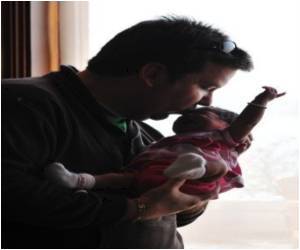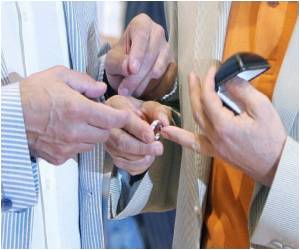
It is likely to be swiftly passed in the third reading and the upper house Federation Council. President Vladimir Putin has already vowed to sign it into law.
The restriction would follow the approval last year of an adoption ban for citizens of the United States despite massive protests and petitions by thousands of people against the legislation.
The new amendments to Russia's family code say those to be banned from adoption include "persons in a marriage union between people of the same sex registered in a state where such a union is allowed, as well as citizens of such states that are not married".
"Adoption of this bill de-facto eliminates the chance for foreign persons of so-called non-traditional sexual orientation to adopt Russian children," one of the bill's authors Yelena Mizulina said in televised remarks ahead of the vote.
The wording implies that couples in a heterosexual marriage would still be allowed to adopt Russian children. But single people would be banned, regardless of their sexual orientation.
Advertisement
"If a child ends up with a homosexual couple it could of course cause severe damage and the child ends up with a distorted perception of reality," he said.
Advertisement
The Russian amendment was added to a broader bill passed in an initial reading in April that aimed to encourage adoption by Russian families by paying Russians up to 100,000 rubles ($3,000, 2,330 euros) for adopting a child over seven years old or with a disability.
It followed the law that went into effect in January, which banned all adoptions to the United States, a country that adopted hundreds of children from Russia every year.
Children's rights activist Boris Altshuler said on Kommersant FM radio that he was surprised at such close attention by the Duma to same-sex marriage laws of other countries.
"They are involved in these marginal discussions instead of really helping orphans," he said.
Many Russian non-profit organisations working with orphanages have said that payouts to adopting couples do not help and that instead the entire institution-based orphanage system must be overhauled to encourage foster care.
Russia has in recent months unleashed a campaign defending "traditional values" and the Duma last week passed a controversial bill that imposes jail terms on people seen as promoting homosexual "propaganda".
A poll by independent Levada Centre in April showed that 39 percent of Russians believe that gays and lesbians should have the same rights as heterosexuals, while 47 percent disagreed.
This represented a more conservative trend than a poll from 2005 where figures showed 51 percent for and 35 percent against.
Forty-five percent meanwhile said they believe people become homosexual "because of seduction or of their own licentiousness".
Critics of the "gay propaganda" bill have said that it is likely to stigmatise Russia's homosexual community even further and give a rise to homophobia and hate crimes.
The bill, which has not yet been signed by Putin into law, would make it an offence to say that gay relationships are equal to heterosexual ones.
Source-AFP









